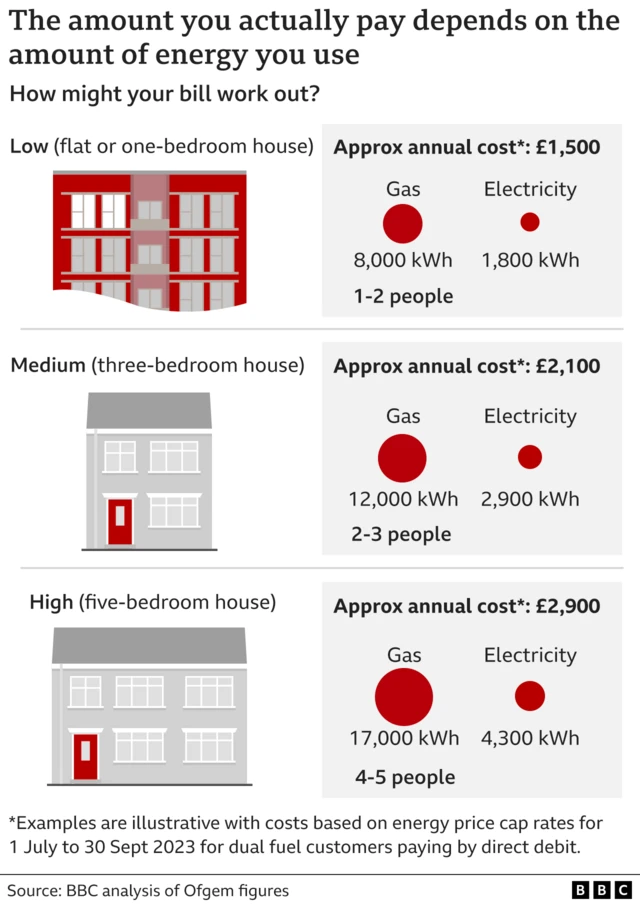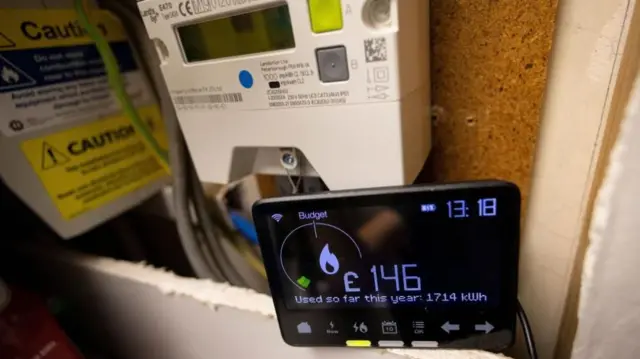Average energy bills fall below £2,000 for first time since April 2022published at 07:07 BST 25 August 2023
Today's announcement from Ofgem means the average household's energy bills will dip below £2,000 a year for the first time since April 2022.
The current cap of £2,074 a year will drop to £1,923 for the average household in England, Wales and Scotland from 1 October.
But it's important to remember the cap applies to the unit price of energy, not the total bill, so if you use more, you'll pay more.



